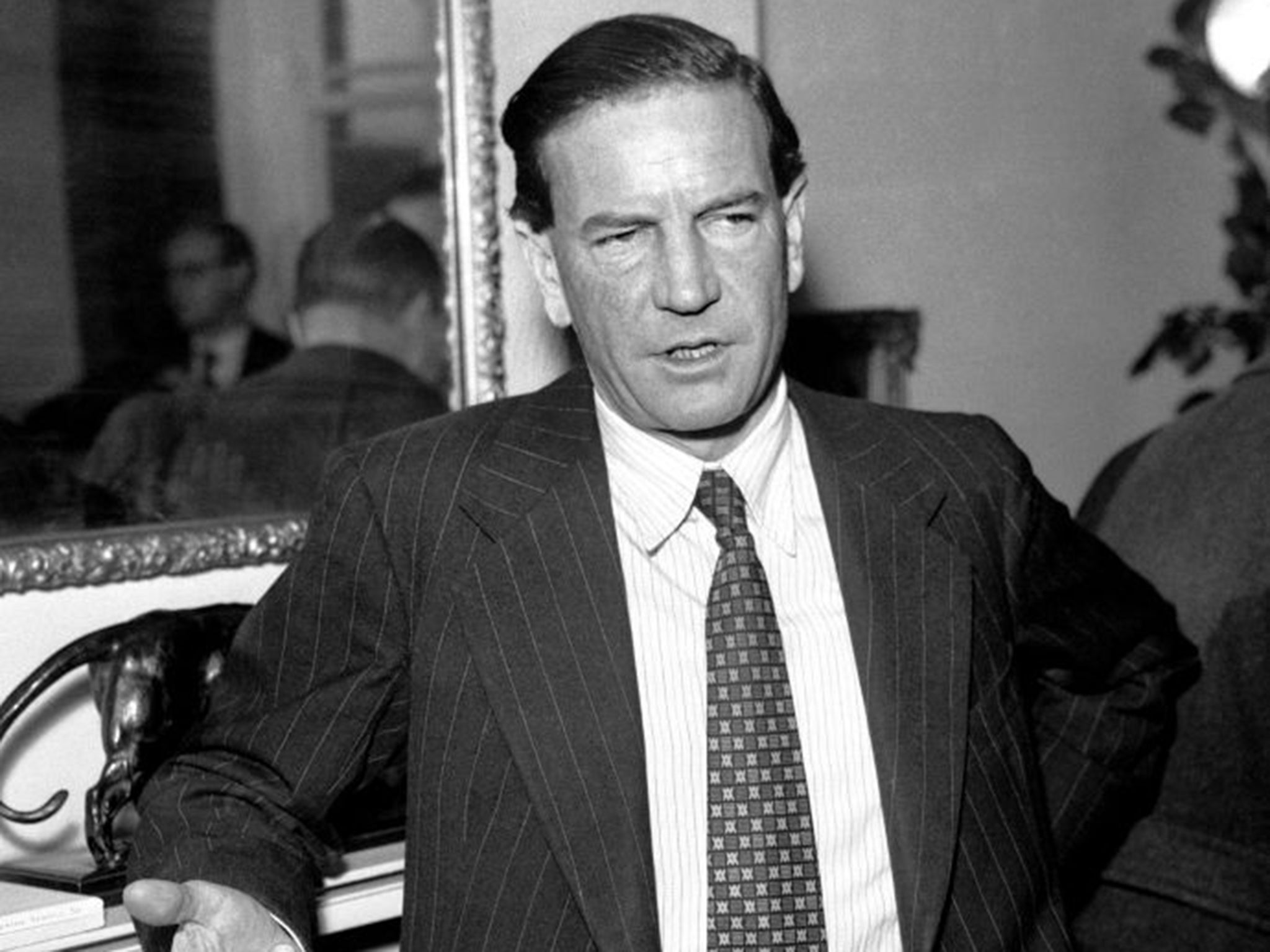Kim Philby: MI6 double agent's attempts to avoid being unmasked as Soviet spy revealed in secret files
The records show how Philby desperately manoeuvred to try to keep himself out of the spotlight of suspicion

Your support helps us to tell the story
From reproductive rights to climate change to Big Tech, The Independent is on the ground when the story is developing. Whether it's investigating the financials of Elon Musk's pro-Trump PAC or producing our latest documentary, 'The A Word', which shines a light on the American women fighting for reproductive rights, we know how important it is to parse out the facts from the messaging.
At such a critical moment in US history, we need reporters on the ground. Your donation allows us to keep sending journalists to speak to both sides of the story.
The Independent is trusted by Americans across the entire political spectrum. And unlike many other quality news outlets, we choose not to lock Americans out of our reporting and analysis with paywalls. We believe quality journalism should be available to everyone, paid for by those who can afford it.
Your support makes all the difference.The attempts by Kim Philby to avoid being unmasked as a Soviet spy following the flight to Moscow of his fellow MI6 double agents Donald Maclean and Guy Burgess have been revealed in files previously kept in a hidden government archive.
The records, which were until recently held at a secret high-security facility in the Home Counties, show how Philby desperately manoeuvred to try to keep himself out of the spotlight of suspicion as investigators raced to work out whether his two missing colleagues had operated alone.
The files, released by the National Archives in Kew, west London, were among hundreds of thousands of documents held for decades in a Foreign Office archive at Hanslope Park in Buckinghamshire, whose existence only came to light in 2013.
The disappearance of Burgess and Maclean in May 1951, slipping their MI5 watchers to board a cross-Channel steamer, caused panic in Whitehall as the realisation dawned that the two diplomats were part of what was eventually revealed to be the Cambridge Spy Ring.
Investigators had yet to establish that Philby, by now one of the most senior officers in Britain’s overseas espionage service, had been recruited to the KGB along with his close friend Burgess and Cambridge contemporary Maclean in the 1930s and spent the subsequent years betraying some of Britain’s most sensitive secrets.
Philby found himself at the top of the list of suspects because Burgess, an unstable alcoholic, had been living with him at his home in Washington prior to his disappearance with Maclean.
It later emerged that Philby and Burgess had hatched a plan to ensure that Burgess was recalled to London so he could warn Maclean he was about to be unmasked as the source of a wartime leak of telegrams between Winston Churchill and American president Franklin Roosevelt.
Philby, considered the most important of the Cambridge ring, had not expected Burgess to accompany Maclean to Moscow. His disappearance led MI5, which was charged with counter-espionage, straight to Philby.
The documents show that Philby initially feigned incredulity at the idea of Burgess’s betrayal before then appearing to slowly come around to the idea that he had unwittingly given shelter to a Soviet spy.
He cabled the head of MI6, Sir Stewart Menzies, to tell him he had been able to piece together a “few isolated facts” which he now considered suspicious, including the fact his guest had possessed a camera and sunlamp - used to develop film - as well as a book by Stalin on colonialism.
Philby wrote: “There is, I am afraid, very little doubt that Burgess had available the essential requirements of an espionage agent.”
With considerable disingenuousness, Philby told his employers that Burgess had been making frequent trips to New York for what he presumed were meetings with his Soviet handler. In reality, Burgess had been acting as a courier to Philby’s KGB contact.
The Burgess/Maclean affair eventually cost Philby his career in British intelligence. He was forced to resign from MI6 after his links to the two men became public.
But despite being recalled to London and facing interrogation by both MI5 and MI6, it took another 12 years before Philby was finally unmasked when he defected in 1963.
He never forgave Burgess for putting an end to his life as a double agent - apparently refusing to meet his former colleague once he reached Moscow.
Philby later said his final words to Burgess when he left Washington to warn Maclean had been: "Don’t you go too."
Join our commenting forum
Join thought-provoking conversations, follow other Independent readers and see their replies
Comments